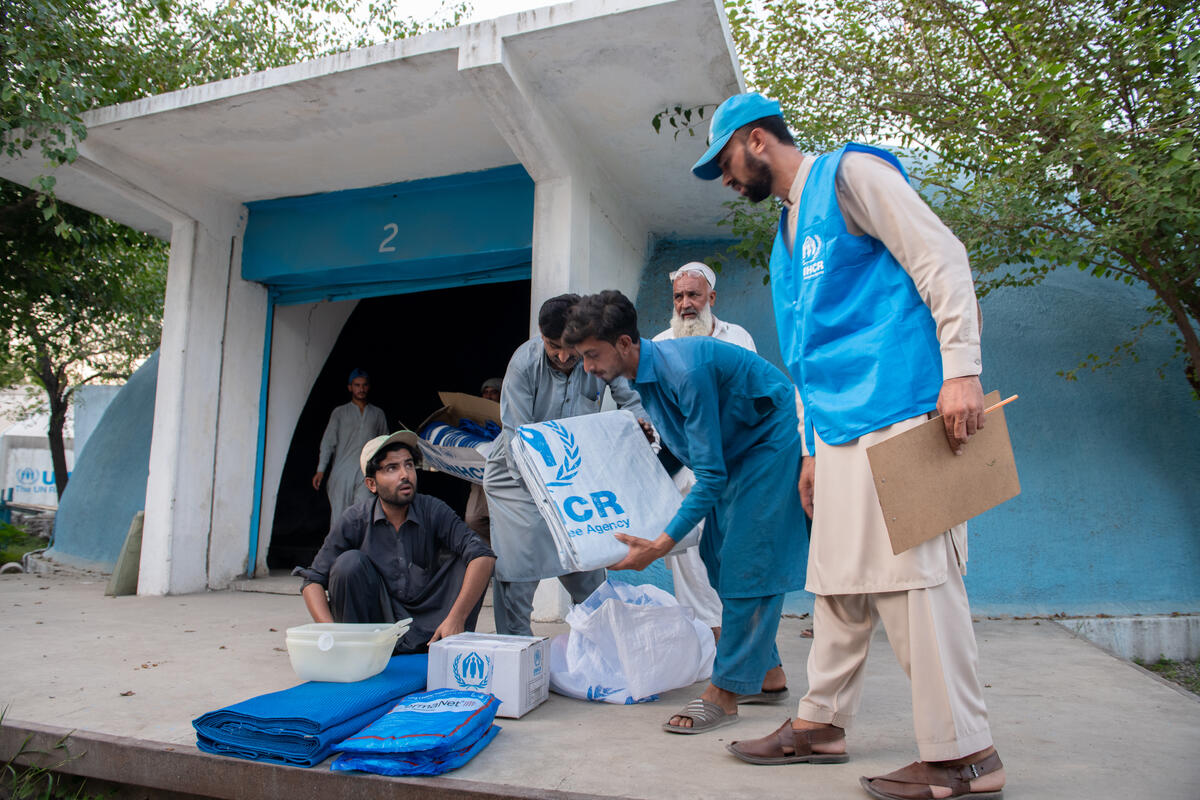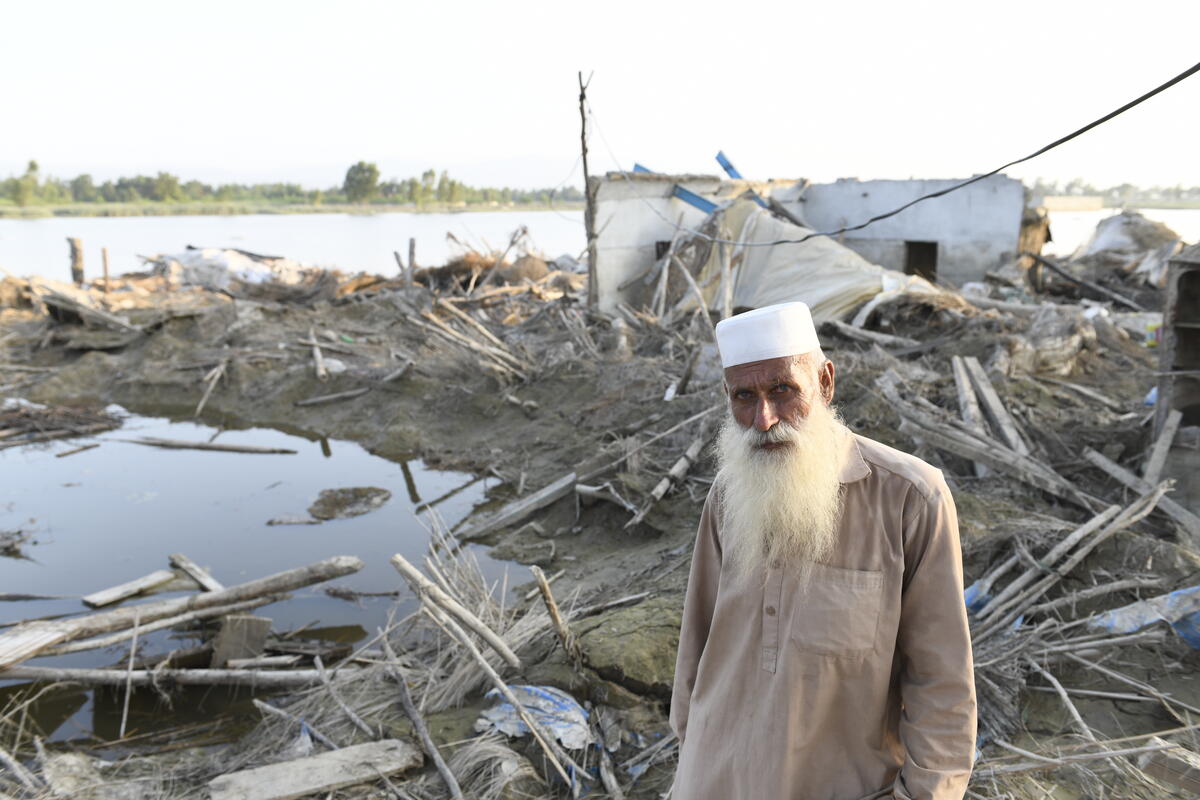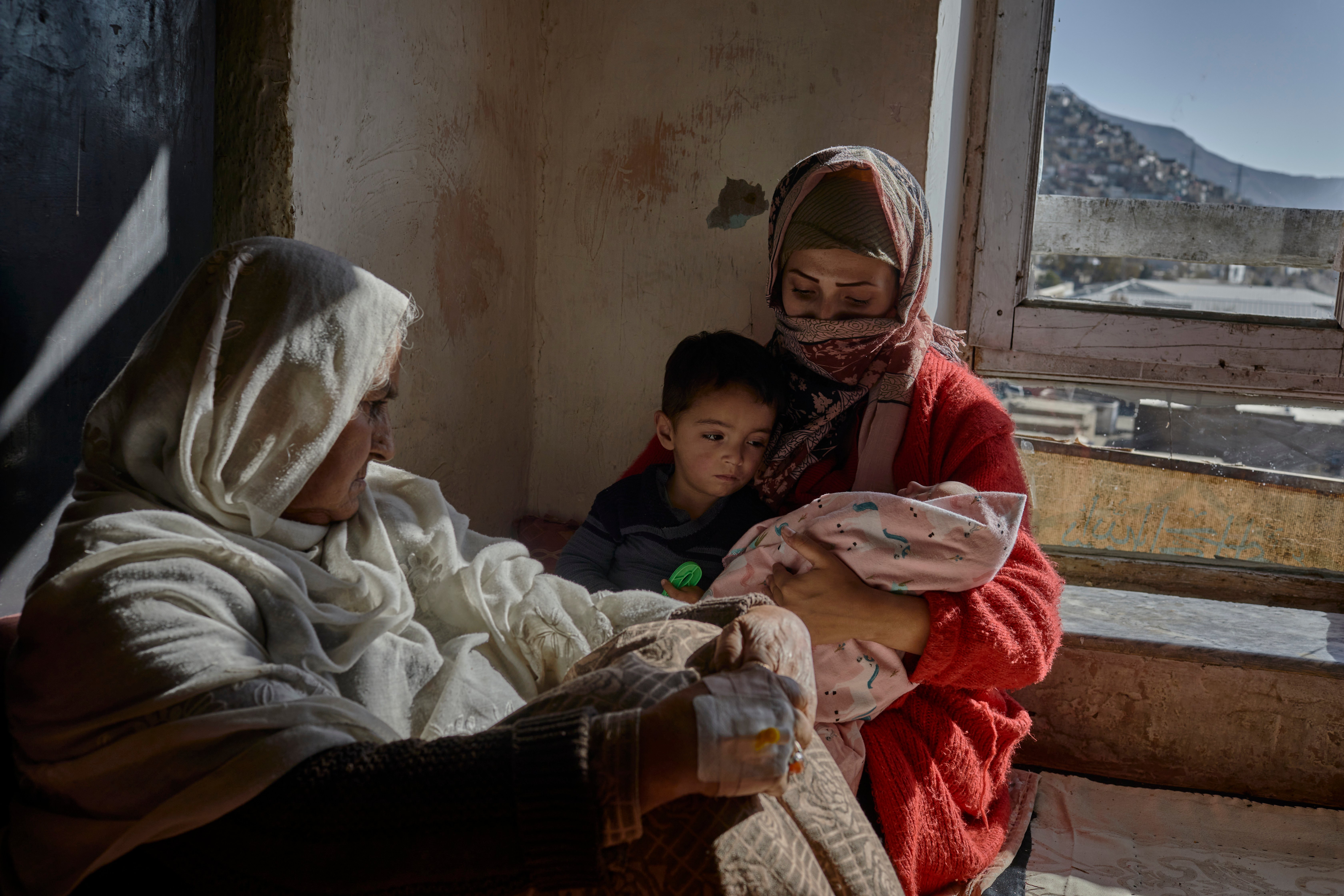UNHCR expresses concern at sudden rise in number of Afghans arriving in Pakistan
UNHCR expresses concern at sudden rise in number of Afghans arriving in Pakistan

This Afghan refugee is among the thousands who arrived at the Pakistani border in recent days.
CHAMAN, Pakistan, Feb. 19 (UNHCR) - With more than 20,000 Afghans waiting to enter the Killi Faizo transit camp on the Pakistani border and hundreds more arriving every day, the United Nations High Commissioner for Refugees said Tuesday it was seriously worried about the influx.
The refugee agency said that more than 50,000 persons have sought safety in Pakistan since the latest flow of refugees began on December 31, despite the end of massive U.S.-led bombing and the defeat of the Taliban regime.
It estimated that more than 20,000 Afghans are waiting to enter the country through the Chaman crossing, compared with only 5,000 as recently as ten days ago. Some 400 families are being registered daily into the Killi Faizo transit site.
"Needless to say, we are quite concerned about the exodus," Kris Janowski, a UNHCR spokesman, told a news briefing in Geneva. "They are being driven out by a number of reasons, primarily banditry but also a total lack of aid in some regions."
Many of the new arrivals are Kuchis, Afghan nomads who say they fled to Pakistan because they ran out of food as a result of the long drought in many parts of the country. Ethnic Pashtuns among the refugees told UNHCR they decided to seek safety after being robbed and intimidated in ethnically mixed villages in northern Afghanistan, often at the instigation of local commanders.
"The pace of this influx is truly alarming," Janowski said. "The Afghans are also looking more and more destitute. What's more worrying is that the new arrivals say that many more Afghans are behind them."
He said refugees interviewed by the U.N. agency do not indicate they are fleeing continuing sporadic bombing by the United States. The principal reasons for the surge in returns are the lack of security in many areas of Afghanistan and the resulting lack of aid. "Large rural areas of Afghanistan are basically still off limits" to international aid agencies, Janowski added.
UNHCR is currently caring for more than 204,000 Afghans in 16 sites along Pakistan's border belt. It estimates that 250,000 people crossed into the country since the September attacks against the United States. In all, there are currently more than 3.5 million Afghan refugees in Pakistan and Iran.
Although more than 143,000 refugees have voluntarily returned to Afghanistan from Pakistan and Iran thus far this year, Janowski said that if the current pace of new arrivals continues, more people may actually come out of the country than go back.
The refugee agency announced plans last week to actively help some 1.2 million refugees and internally displaced persons return to their homes this year. The plan includes registering tens of thousands of people a day in both Pakistan and Iran and establishing distribution centres across Afghanistan to supply returnees with food and other essential items.









